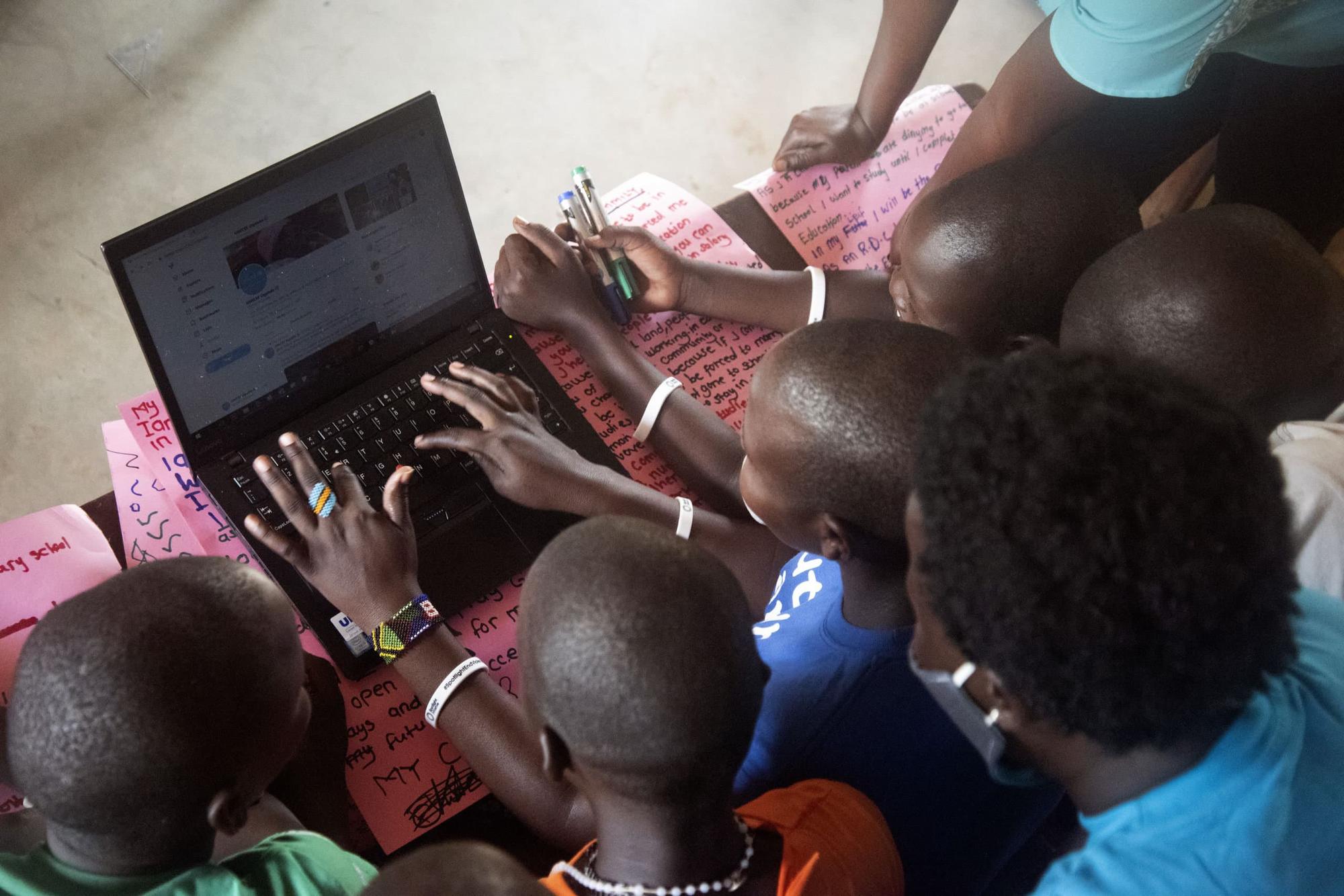How Social Listening Helps Combat Vaccine Hesitancy Amid the Infodemic in Cameroon

In today’s digital era, vaccine hesitancy is increasingly shaped by the spread of misinformation, a challenge made worse by the COVID-19 pandemic. Social listening has become a critical tool for identifying and addressing this issue, particularly amid the ongoing infodemic—the rapid spread of false or misleading information. In Cameroon, where polio and other vaccination campaigns have faced significant hurdles since 2020, social listening has played a pivotal role in identifying rumors and misinformation that undermine public trust. By detecting these false narratives early and responding swiftly, vaccination campaigns are better positioned to rebuild confidence and ensure broader immunization coverage.
The Role of Social Listening in Immunization Campaigns
Since late 2021, the Expanded Program on Immunization (EPI), with support from partners like UNICEF, has implemented a social listening mechanism to monitor and respond to misinformation circulating both online and offline. This tool has been especially valuable in Cameroon, where recent polio campaigns have been heavily impacted by false information about vaccines. Social listening helps identify the key sources of misinformation, such as misconceptions about vaccine safety or exaggerated fears of side effects.
Through coordinated efforts at both central and local levels, misleading rumors—including those related to polio and concerns about vaccine side effects—are quickly addressed. This rapid response helps restore public trust and ensures the integrity of the vaccination process. By engaging directly with communities, EPI and UNICEF can dispel myths and reassure people that vaccines are safe and necessary for public health.
UNICEF’s Strategy to Tackle Misinformation and Vaccine Hesitancy
A prime example of this strategy in action occurred during the yellow fever vaccination campaign held in Cameroon from July 24 to 30, 2024. Midway through the campaign, rumors resurfaced regarding adverse effects from previous vaccination efforts, leading to increased vaccine hesitancy in several regions. However, the social listening mechanism allowed health authorities to detect this early and take swift action to calm concerns.
In collaboration with EPI coordination, UNICEF Cameroon mobilized community leaders, yellow fever survivors, and local media outlets to counter the misinformation with accurate, timely information. Trusted voices—such as respected community leaders and personal testimonies from survivors—were key to rebuilding confidence. Verified data on vaccine safety was also shared widely, both through traditional media and social media platforms, ensuring the public had access to facts, not fear. This coordinated response helped keep the campaign on track and strengthened the community’s trust in the vaccination process.
The Impact of Social Listening in Combating Vaccine Misinformation
This experience highlights how vital social listening is in maintaining public confidence in vaccination efforts. By detecting and addressing misinformation in real-time, social listening provides more than just a reactive response; it enables health campaigns to proactively shape public narratives and rebuild trust.
In the context of immunization campaigns in Cameroon, social listening not only helps combat vaccine hesitancy but also fosters open dialogue with communities, ensuring that their concerns are heard and addressed. This proactive approach creates a stronger, trust-building dynamic that is essential for the long-term success of public health initiatives.
Sharing Successes and Building Future Strategies
The success of social listening in Cameroon’s yellow fever and polio campaigns offers valuable lessons for other countries facing similar challenges. By sharing these strategies across UNICEF’s Country Offices, other regions can learn from Cameroon’s experience and adapt their approaches to local contexts. As vaccine hesitancy continues to challenge global immunization efforts, UNICEF’s Polio Social and Behavior Change (SBC) team encourages teams worldwide to share their stories of success with social listening.
By working together and sharing knowledge, UNICEF and its partners can continue to build resilient, well-informed communities that are better equipped to combat misinformation and infodemics, ensuring that vaccination campaigns reach their full potential in protecting public health.
Written by Pascal Adouabou, UNICEF Cameroun SBC Specialist
Edited by Daria Shubina, UNICEF NY HQ Polio SBC Knowledge Management Specialist

